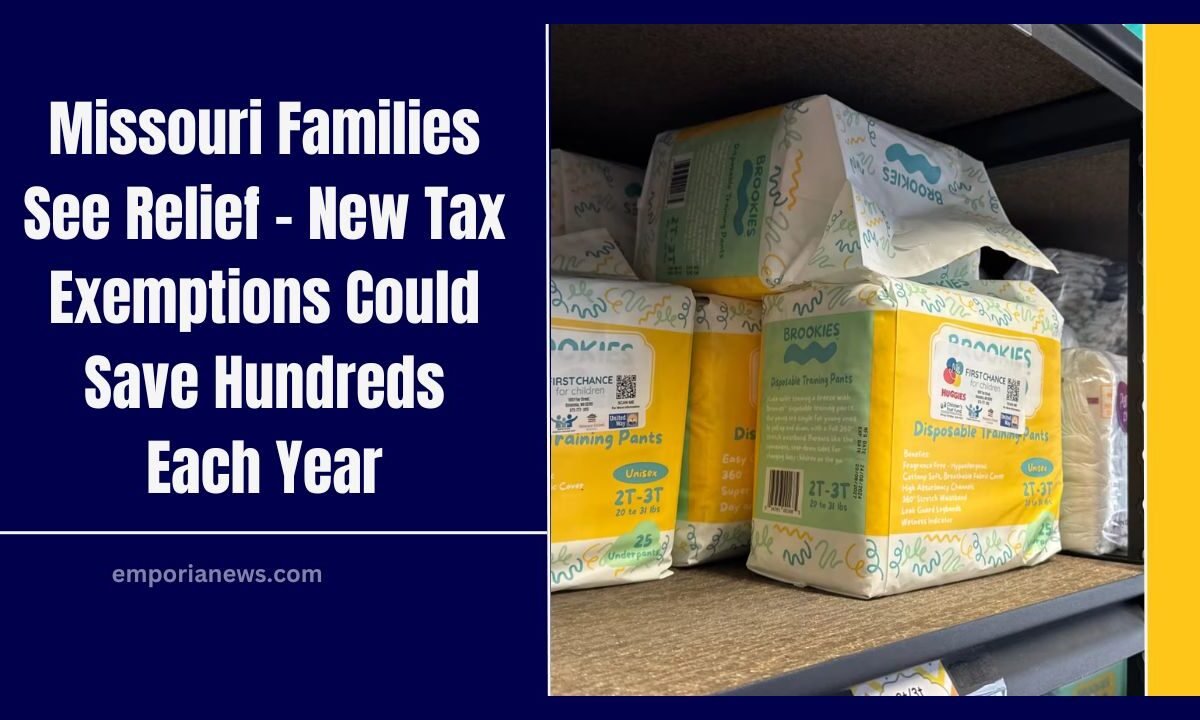Missouri families are set to save money under new tax exemptions that eliminate local and state sales taxes on essential everyday items.
With costs of living continuing to rise, these changes are expected to ease financial strain for thousands of households. The newly approved measure applies to diapers, feminine hygiene products, and adult incontinence products — items that many families rely on daily.
What Items Are Covered?
The tax exemptions specifically target products that have been long considered non-discretionary necessities. Families in Missouri will no longer pay state or local sales tax on the following:
- Diapers for infants and toddlers
- Feminine hygiene products such as tampons and pads
- Adult incontinence supplies
This policy not only addresses affordability but also recognizes the importance of hygiene and healthcare for all age groups.
Estimated Savings for Families
While the savings may seem modest individually, they add up significantly over the course of a year, especially for larger households.
| Item | Estimated Annual Savings Per Person/Child | Details |
|---|---|---|
| Diapers | $30 – $60 per child | Based on average diaper use per year |
| Feminine Hygiene Products | $6 per woman | Based on typical annual use |
| Adult Incontinence Products | Varies ($20 – $50) | Depends on product type and usage |
For a family with two children in diapers and one adult using feminine hygiene products, annual savings could easily reach $100 or more.
Impact on Missouri’s Budget
The new exemptions are expected to cost the state more than $200 million in general revenue. Missouri Department of Revenue Director Trish Vincent emphasized that this trade-off is intentional, designed to put money back into residents’ pockets during times of economic uncertainty.
“The trade-off is worth it to give money back to families,” Vincent said.
Despite the budgetary impact, lawmakers argue that the relief will ultimately support both low-income and middle-class households, many of whom are struggling to balance essentials like food, transportation, and childcare.
Why Families Needed This Relief
Advocates point out that the cost of basic hygiene products has risen alongside inflation. Gay Litteken, executive director at First Chance for Children in Columbia, highlighted the growing demand for diapers among struggling families.
She noted that the need for diaper assistance has nearly doubled in the past year. For families already facing financial strain, even small savings can make a meaningful difference.
“It may be just a few cents to some, but it can mean the difference between putting gas in your car, putting more food on the table, and having diapers for your children,” Litteken explained.
Missouri Joins a National Trend
Missouri is not alone in pursuing this type of exemption. Several other states have eliminated or reduced taxes on essential hygiene items, recognizing them as necessities rather than luxuries.
By doing so, Missouri lawmakers align with a growing national movement toward reducing the “pink tax” and other unfair cost burdens.
What It Means for the Future
This tax policy is expected to provide lasting relief for families, particularly young parents, women, and seniors.
While some critics worry about the impact on state revenues, many argue the social and economic benefits outweigh the losses. Families will be able to reallocate savings toward food, housing, healthcare, and other priorities.
The new Missouri tax exemptions mark a significant step in supporting families and reducing unnecessary financial burdens. By eliminating sales taxes on diapers, feminine hygiene products, and adult incontinence supplies, families can expect annual savings ranging from $30 to $100 or more, depending on household needs.
Although the state will lose an estimated $200 million in revenue, the policy provides much-needed relief for struggling households and reflects a commitment to prioritizing family well-being over revenue collection.




